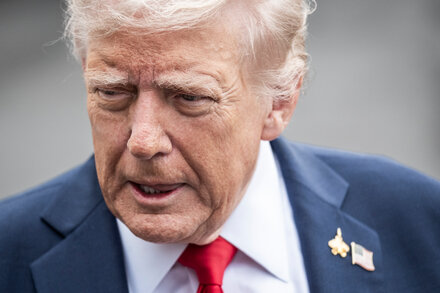
WASHINGTON – The White House is intensifying efforts to neutralize a Democratic strategy that seeks to leverage a looming government shutdown threat over critical health care funding and policies. As the federal budget deadline approaches at the end of September, the administration is working to shift the narrative and avoid a potential closure, aiming to portray Democrats as obstructionist while positioning itself as the party committed to keeping the government open.
The Democratic caucus, particularly in the House, has signaled its intention to tie appropriations bills to the protection of key health care provisions, including funding for the Affordable Care Act (ACA) subsidies, prescription drug price negotiation measures, and sustained support for Medicare and Medicaid. Sources familiar with the negotiations indicate that Democrats view health care as a potent issue capable of galvanizing their base and applying significant pressure on the White House and congressional Republicans.
“We are focused on ensuring the government remains open and delivering for the American people, not engaging in brinkmanship over partisan demands,” said a senior White House official, speaking on background. “The President has made it clear that essential services, especially those related to health, must not be held hostage by extreme political ploys.”
The administration’s strategy reportedly includes a two-pronged approach: publicly emphasizing the potential disruption a shutdown would cause to federal services and the economy, and privately seeking to peel off moderate Democrats or highlight potential bipartisan compromises on less contentious elements of the budget. White House strategists are also preparing to unveil alternative proposals aimed at addressing health care costs, seeking to pre-empt Democratic arguments and present the administration as proactive on the issue.
Democratic Stance and Demands
Democrats, however, appear steadfast in their resolve. Leaders in both chambers have articulated that any budget agreement must include robust protections and investments in health care programs that millions of Americans rely on. They argue that the White House’s past rhetoric and proposed budget cuts demonstrate a clear intent to undermine these services, necessitating a firm stance.
“Health care is a fundamental right, not a bargaining chip,” stated Senate Majority Leader Chuck Schumer (D-NY) in a recent press conference. “We will not stand by as vital protections for millions of Americans are threatened. If it takes standing firm to secure these rights, then that’s what we will do.”
The areas of particular contention include funding levels for the Centers for Disease Control and Prevention (CDC), the National Institutes of Health (NIH), and provisions related to reproductive health care. Democrats are also pushing back against potential Republican-led efforts to roll back aspects of the ACA, a perennial battleground issue.
Congressional Landscape
With only weeks remaining until the fiscal year ends on September 30, Congress faces intense pressure to pass appropriations bills or a continuing resolution to avoid a shutdown. The divided control of Congress, with Republicans holding the House and Democrats controlling the Senate, further complicates the path to an agreement. Analysts suggest that while neither party ultimately desires a shutdown, the high-stakes political environment makes such an outcome increasingly plausible.
The White House’s efforts to “blunt” the Democratic strategy are critical to its pre-shutdown communications and public perception management. The administration aims to frame any potential government closure as a result of Democratic intransigence on health care, rather than a failure of executive or broader congressional leadership.
As negotiations continue behind closed doors and public rhetoric escalates, the American public awaits to see if a compromise can be forged or if health care will indeed become the flashpoint for another federal government shutdown.
Source: Read the original article here.





